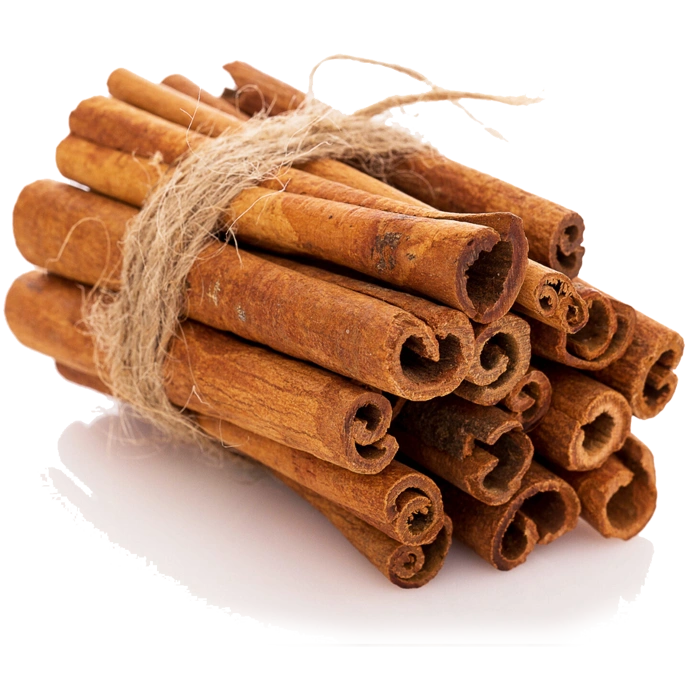Nutritional properties of Cassia
Energy :
None Kcal / 100g
Category : Spices & Sauces
Group : Basic Spices & Condiments
Composition And Nutritional Value :Cassia (Cinnamomum cassia), often referred to as Chinese cinnamon, is a spice derived from the inner bark of the cassia tree, native to Southeast Asia. While cassia and true cinnamon (Cinnamomum verum) belong to the same plant family, cassia has a stronger, spicier flavor. Cassia contains coumarin, a compound that gives it its distinctive aroma and flavor. The spice also contains small amounts of vitamins such as vitamin A, B-vitamins (like B6), and minerals such as calcium, iron, and magnesium. Cassia is known for its potent essential oils, especially cinnamaldehyde, which contribute to its warm, sweet-spicy flavor.
Health Benefits :
Antioxidant Properties: Cassia is rich in antioxidants, including polyphenols like flavonoids, which help protect cells from oxidative damage caused by free radicals. Regular consumption may support overall health and help reduce the risk of chronic diseases.
Blood Sugar Regulation: Cassia has been shown to have potential benefits for people with type 2 diabetes. The compounds in cassia can help improve insulin sensitivity and regulate blood sugar levels. Some studies suggest that cassia may lower blood sugar levels after meals, supporting its role in managing diabetes.
Anti-inflammatory: Cassia possesses anti-inflammatory properties, which can help reduce inflammation in the body, making it useful in treating conditions like arthritis or other inflammatory disorders.
Digestive Health: Cassia has traditionally been used to soothe digestive issues. It can help alleviate symptoms like indigestion, bloating, and gas. Cassia may also stimulate appetite and promote healthy digestion.
Antibacterial and Antifungal: The essential oils in cassia have been shown to have antimicrobial properties, which can help fight off bacteria and fungi, supporting immune function and preventing infections.
Culinary Uses :
Cassia is widely used in cooking, particularly in spice blends like Chinese five-spice powder and garam masala. It is commonly added to dishes like stews, soups, and marinades, where its bold flavor enhances meats, particularly pork, and duck. Cassia is also a key ingredient in desserts and baked goods, such as cakes, cookies, and cinnamon rolls, although it is often used in place of true cinnamon in these recipes. In addition to savory and sweet dishes, cassia is also used in beverages like chai tea and mulled wine for added warmth and spice. Its strong, sweet flavor works well in both hot and cold dishes.

